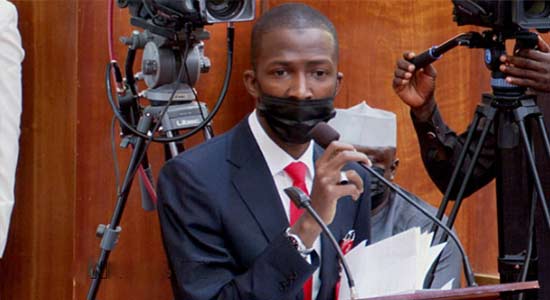LAW ENFORCEMENT 23/08/2022
EFCC Opposes INEC on Creation of Electoral Offences Commission

The Economic and Financial Crimes Commission (EFCC) has opposed the establishment of an Electoral Offence Commission, citing duplication of functions.
The stance of the EFCC was delivered by its Assistant Commandant, Deborah Ademu-Eteh, on Tuesday at the public hearing organised by the House of Representatives Committee on Electoral Matters.
According to her, electoral offences are already covered under the penal and criminal codes, the Independent Corrupt Practices and other Related Offences Act (, 2000 and the Economic and Financial Crimes (Establishment) Act, 2004.
Mrs Ademu-Eteh said there is no need to create another agency since elections are seasonal events. She added that existing security agencies should be strengthened to prosecute offences.
“There is no need to create an agency solely for the purpose of investigating and prosecuting electoral offences most especially when our electoral process is seasonal in nature being that elections are held once in four years in the country.
“Furthermore, it is our suggestion that the existing law enforcement agencies should be strengthened to achieve maximum output Instead of creating a new agency of investigation and prosecution of electoral offences in the light of the ongoing plan to implement the Oronsanye Committee’s proposal by the Federal Government of Nigeria,” she said.
Earlier, the Chairperson of the Independent National Electoral Commission (INEC), Mahmood Yakubu, in his presentation, said there is a need to make an exception for the Commission.
“For those who argue that the solution does not lie in expanding the federal bureaucracy by creating a new Commission, we believe that the National Electoral Offences Commission should be seen as an exception.
“While there are other security agencies that deal with economic and financial crimes, I am yet to hear anyone who, in good conscience, thinks that it is unnecessary to have established the anti-corruption agencies.
Mr Yakubu said INEC is incapacitated to prosecute electoral offenders because it is currently overburdened with other responsibilities.
“The Commission has no capacity to arrest offenders or conduct investigation that leads to successful prosecution of especially the high-profile offenders,” he said
He added that “since the 2015 General Election, 125 cases of electoral offences were filed in various Courts out of which 60 convictions have been secured so far, including the most recent one in Akwa Ibom State.”
In his remarks, the Speaker of the House, Femi Gbajabiamila said the outcome of past elections reinforces the argument to have a body saddled with prosecuting electoral offenders.
Mr Gbajabiamila said “electoral crimes lead to low quality, corrupt and violent political leadership. It helps election riggers and offenders take control of governments against the democratic will of the electorates.
“Civil disturbances and violence resulting from manipulated elections strain otherwise harmonious communal relationships with adverse effects on national cohesion, peace and security,” he said.



